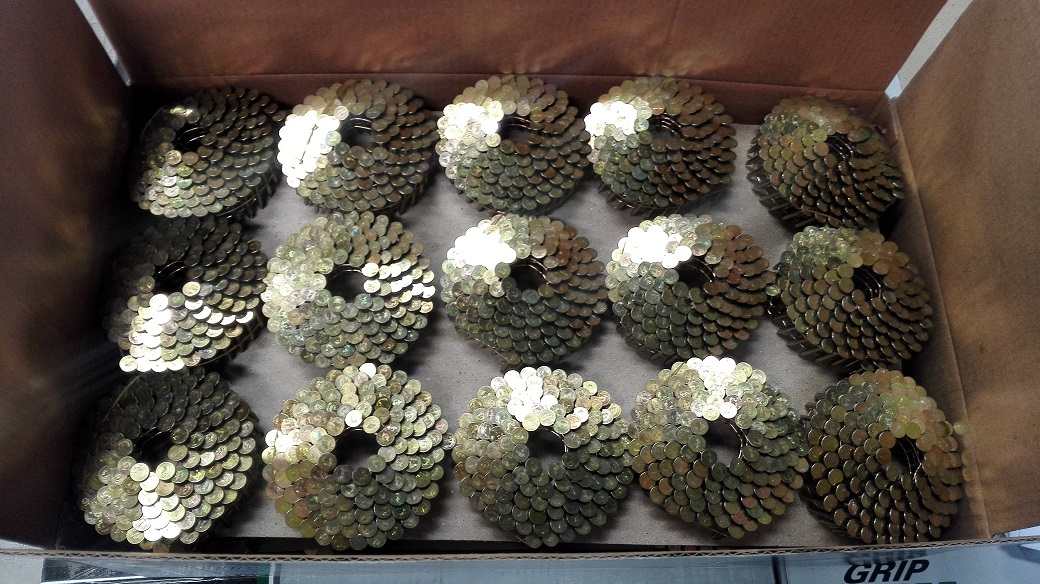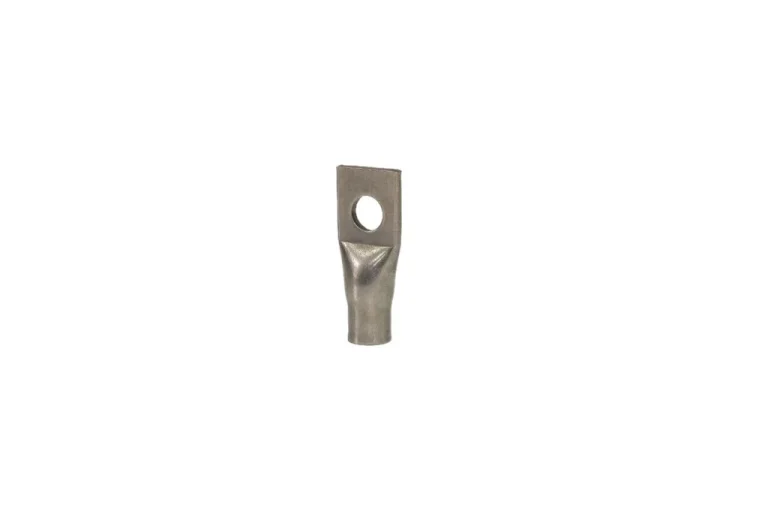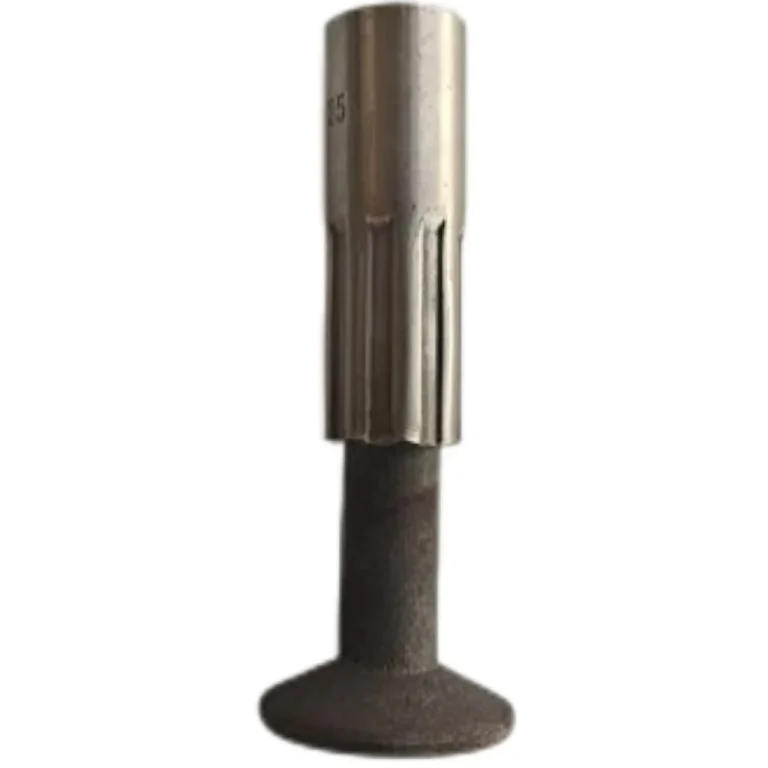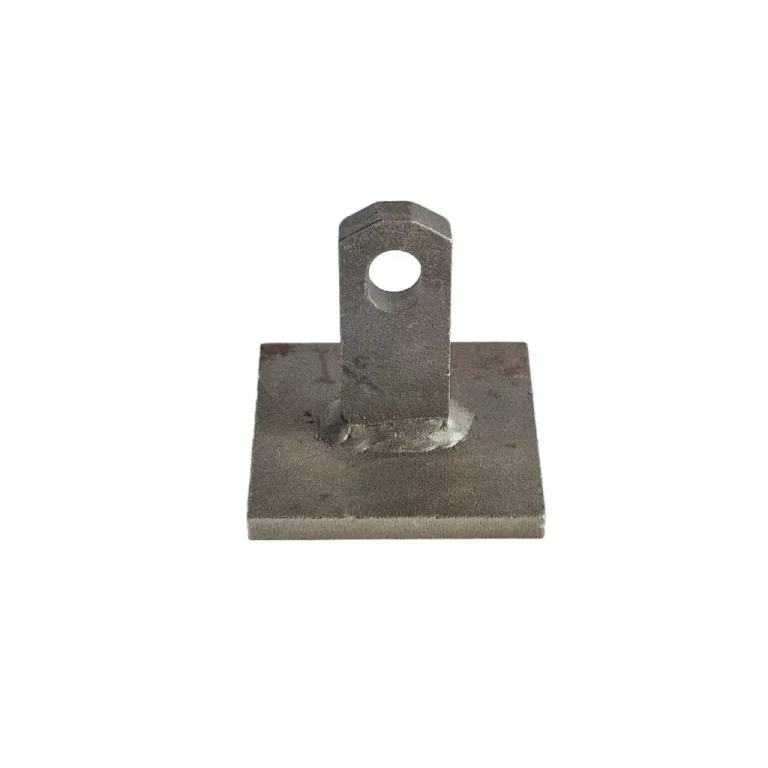What Are Coil Roofing Nails?
Definition and Characteristics
Coil roofing nails are formed into a spiral coil pattern, which facilitates quick loading into nail guns. This design allows for less downtime during installation since the nails can be fired out in rapid succession. Coil nails generally feature a larger head, providing more holding strength against factors such as wind uplift and heavy precipitation. The variety in shank diameter and length caters to different roofing materials and installation techniques.
Materials Used in Coil Roofing Nails
Stainless Steel
Stainless steel coil roofing nails are designed to resist rust and corrosion, making them ideal for coastal areas or regions with high moisture content. The long-lasting nature of stainless steel aids in maintaining the structural integrity of the roofing system over time. However, they may come at a higher price point compared to other materials.
Galvanized Steel
Galvanized coil roofing nails are coated with zinc to prevent rusting and are commonly used in various roofing applications. The galvanization process offers protection against the elements while keeping costs manageable. Their strength and durability make them suitable for both residential and commercial roofing projects.
Aluminum
Aluminum coil roofing nails are lightweight and easy to handle, offering good resistance to corrosion. They are particularly favored for specific roofing materials like aluminum shingles. However, they may not be as strong as stainless or galvanized steel options and are therefore best suited for lighter roofing systems.
Common Sizes and Dimensions
Coil roofing nails come in various lengths ranging from 1 to 2.5 inches, with corresponding diameters to enhance strength and performance. The selection of nail size is crucial, as it affects the depth of penetration and ultimate holding power when fastening roofing materials. Standard coil roofing nails generally have a head diameter of approximately 3/8 inches.
Importance of Choosing the Right Roofing Nails
Impact on Roof Longevity
Selecting appropriate coil roofing nails directly impacts the long-term durability of a roofing system. Nails that are insufficient for the roofing material or environment may lead to premature failure. Over time, a roof installed with sub-par nails could suffer from loose shingles and unanticipated repairs, shortening its lifespan.
Preventing Roof Leaks
Roof leaks can arise from the improper selection of roofing nails. Incompatible materials or incorrect sizes may cause fasteners to loosen over time, creating openings for water penetration. Choosing coil roofing nails that meet the specifications for the roofing material and installation method is vital for maintaining a watertight seal.
Ensuring Proper Roof Attachment
Effective roof attachment relies on the correct coil roofing nails for the chosen installation method. Overly shallow or incorrectly placed nails can undermine the stability of roofing materials, resulting in potential blow-offs due to wind forces. Therefore, the correct choice ensures that roofing systems can withstand both environmental conditions and wear over time.
How to Choose the Best Coil Roofing Nails for Your Project
Consider Roof Material Compatibility
Asphalt Shingles
When working with asphalt shingles, it is crucial to select coil roofing nails that have a minimum length for proper grip. Typically, nails measuring 1.75 inches are used to ensure they penetrate the decking sufficiently. Additionally, using corrosion-resistant materials like galvanized or stainless steel can help prevent rust-related issues.
Metal Roofs
For metal roofing, coil roofing nails with a sharp point and stronger fastening capabilities are necessary. They are available in various lengths and gauges and should be chosen based on the metal gauge and roofing system. Proper selection minimizes potential issues such as warping or buckling during installation.
Wooden Shakes or Shingles
In installations involving wooden shakes or shingles, it is essential to use coil roofing nails that allow for expanded wood movement. A longer shank helps secure the shingles properly while accommodating natural changes in the wood. Using material designed to resist corrosion is also advisable to prolong the roof’s life.
Weather Conditions and Environmental Factors
Regional climates significantly influence the choice of coil roofing nails. For areas prone to high humidity or corrosive environments, options such as stainless steel or galvanized nails are recommended. Understanding temperature fluctuations and precipitation patterns also helps guide the best materials to withstand these elements.
Nail Length and Gauge Selection
Selecting the right nail length and gauge is crucial for optimal performance. A longer nail provides a more secure hold by allowing for deeper penetration into the roofing substrate. The gauge should align with the thickness of the materials being fastened to ensure proper grip without damaging or splitting the material.
Installation Tips for Coil Roofing Nails
Tools Required for Installation
Nail Guns vs. Hammer Installation
The use of nail guns offers efficiency and speed, making them ideal for large roofing projects. However, for smaller jobs or areas requiring precision, manual hammer installation may be preferred. Understanding the project scope helps determine which installation method suits best.
Correct Nail Placement Techniques
Correct nail placement should always be observed to ensure a secure fastening. Nails should be driven flush with the roof surface, avoiding damage to the roofing material. Proper spacing between nails is also essential to prevent leaks and achieve adequate holding power.
Safety Precautions During Installation
Safety should be paramount during the installation of coil roofing nails. Wearing protective gear such as gloves, goggles, and hard hats can help prevent injuries. Additionally, ensuring the work area is secure and that all tools are in good condition aids in avoiding accidents.
BAOQI: A Trusted Brand in Coil Roofing Nails
Overview of BAOQI
History and Reputation
BAOQI has established itself as a prominent and trusted brand in the coil roofing nails market. Founded with the vision of enhancing roofing solutions, the company has seen significant growth in its product line and customer base over the years. BAOQI ensures that its products meet stringent quality standards, garnering a loyal following among roofing contractors and DIY enthusiasts alike. The company’s commitment to durable products has propelled it into a respected position within the roofing industry, making it synonymous with reliability.
Commitment to Quality and Innovation
The ethos of BAOQI is deeply rooted in a commitment to quality and continuous innovation. The brand invests time and resources into research and development to offer products that meet the evolving needs of the construction industry. BAOQI places an emphasis on using high-quality materials and advanced manufacturing processes, ensuring that its coil roofing nails provide both performance and durability. This unwavering focus on quality allows customers to feel secure in their choice, knowing they are selecting a product designed to withstand various environmental challenges.
Popular Products from BAOQI
Types of Coil Roofing Nails Offered
BAOQI provides an extensive range of coil roofing nails tailored to meet the diverse needs of roofing projects. Among their offerings are galvanized coil nails, which are perfect for general roofing applications due to their durability and resistance to rust. Additionally, stainless steel coil nails are available for regions with harsher weather conditions, where corrosion resistance is critical. The versatility in nail sizes and gauges allows BAOQI to provide options suitable for different roofing materials, including asphalt shingles, metal, and wood.
Unique Features and Benefits
What sets BAOQI’s products apart is the attention to detail in their design and functionality. One significant feature is the coils’ ability to facilitate rapid installation through pneumatic nail guns, saving time and enhancing productivity on job sites. Furthermore, BAOQI’s nails feature larger heads and optimal shank designs that maximize holding power, thereby improving the overall integrity of roofing installations. The combination of efficiency, strength, and reliability makes BAOQI’s coil roofing nails a preferred choice for roofing professionals.
Maintenance Tips for Roofs with Coil Roofing Nails
Regular Inspection Procedures
To keep roofs utilizing coil roofing nails in optimum condition, regular inspections are crucial. Homeowners and contractors should perform bi-annual roof checks, particularly after severe weather events. Inspecting for loose individual shingles, missing nails, or any visible signs of damage is essential in preventing small issues from evolving into bigger, costly repairs. Additionally, checking for the presence of rust or corrosion on exposed nail heads can help identify underlying problems early.
Addressing Common Issues
Rust and Corrosion
Rust and corrosion are significant concerns for roofs with coil roofing nails, particularly in humid climates. If homeowners find signs of rust, they must address it immediately to prevent deterioration of both the coils and the roofing material. One preventive measure includes selecting appropriately coated nails during installation, such as galvanized or stainless steel variants. Regular maintenance, including cleaning the roof surface to eliminate debris and moisture, can further reduce the risk of rust and support the longevity of the roofing system.
Loose or Missing Nails
Loose or missing coil roofing nails can lead to water infiltration and potential roof leaks. Homeowners should be vigilant in monitoring their roofs for any signs of loose shingles, which can indicate problems with the nail integrity. Such issues should be promptly addressed by resecuring loose shingles with new coil roofing nails. For missing nails, adding new fasteners in the appropriate locations can help secure the roofing materials and maintain a watertight seal.
Frequently Asked Questions About Coil Roofing Nails
Can I use coil roofing nails on all types of roofing materials?
Coil roofing nails are versatile but may not be suitable for all roofing materials. It is essential to consider the compatibility of the coil nails with specific materials such as asphalt shingles, metal roofs, or wooden shakes. Each material may require different nail lengths, diameters, and types to ensure proper fastening and to meet local building codes. Homeowners should consult manufacturer guidelines to select the right coil roofing nails for their specific project type.
How do I prevent my coil roofing nails from rusting?
To prevent coil roofing nails from rusting, it is advisable to use nails made from corrosion-resistant materials, such as galvanized or stainless steel. Additionally, ensuring that the nail heads are adequately covered and that the roof surface remains clean and free from debris can help minimize moisture exposure. Regular inspections to identify and address any areas of concern, such as loose shingles, will also assist in preventing water infiltration that could lead to rust development.
Are galvanized coil roofing nails better than stainless steel?
Choosing between galvanized coil roofing nails and stainless steel options is typically dictated by the specific environmental conditions of the installation site. Galvanized nails provide an economical and effective solution for many roofing applications but may be less durable in extremely corrosive environments, such as coastal regions. Stainless steel nails, on the other hand, offer superior corrosion resistance, making them ideal for areas with high humidity or salt exposure. Ultimately, the decision will depend on budget considerations and the unique conditions of the roofing project.
By understanding coil roofing nails, their types, and proper maintenance, homeowners can ensure a durable and long-lasting roofing system. Knowledge of brands such as BAOQI and informed choices regarding nail materials and sizes contribute significantly to the overall success of roofing installations. Frequent inspections and preventive measures can further enhance the durability of roofs, paving the way for a worry-free roofing experience.









